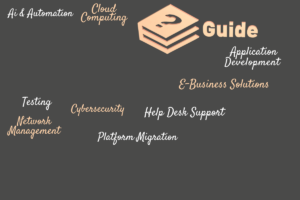For financial advisors, mortgage brokers, and other professionals in the financial services sector, cloud technology has revolutionized the way business is conducted. It offers unparalleled convenience, enabling efficient data storage, seamless collaboration, and remote access to vital information. However, alongside these benefits comes the critical challenge of ensuring data security and maintaining compliance with regulations such as New Zealand’s Privacy Act 2020 and Anti-Money Laundering and Countering Financing of Terrorism (AML/CFT) laws.
This article explores the benefits of cloud technology, the risks it presents, and practical steps financial professionals can take to strike the right balance between convenience and compliance.
The Benefits of Cloud Technology for Financial Services
Cloud-based solutions have transformed the financial services industry, offering several advantages:
1. Accessibility and Collaboration
Cloud platforms allow financial advisors to access client data from anywhere, enhancing mobility and flexibility. Team members can collaborate in real time, improving efficiency and client service.
2. Cost Efficiency
Cloud solutions eliminate the need for expensive on-premise servers, cutting down hardware costs. Subscription-based models allow firms to pay only for the services they use, making it an affordable option for SMEs.
3. Scalability
As your firm grows, cloud platforms can scale to meet your increasing data storage and operational needs, without requiring major infrastructure changes.
4. Disaster Recovery
Cloud providers offer automated backups and disaster recovery solutions, ensuring your data is protected in the event of an outage or cyberattack.
While these benefits are significant, they must be weighed against the potential risks.
Cloud Security Risks in Financial Services
Despite its advantages, cloud technology presents certain challenges that financial professionals must address:

1. Data Breaches
Cloud storage involves transferring sensitive financial data over the internet, which increases the risk of unauthorized access or leaks.
2. Compliance Concerns
Financial firms must adhere to strict regulations regarding data storage and client confidentiality. Improper handling of cloud technology can result in non-compliance with laws such as the Privacy Act 2020 or AML/CFT requirements.
3. Shared Responsibility
Cloud providers manage infrastructure security, but firms are responsible for securing their applications and ensuring employees follow best practices. This shared responsibility can lead to vulnerabilities if not managed effectively.
4. Third-Party Risks
Relying on cloud vendors means entrusting sensitive data to external parties. Choosing the wrong provider could expose your firm to additional risks.
Striking the Right Balance: Solutions for Cloud Security and Compliance
To leverage the benefits of cloud technology while safeguarding client data and adhering to regulations, financial professionals must implement the following strategies:
1. Choose a Trusted Cloud Provider
Select a provider that complies with New Zealand’s legal and regulatory requirements. Look for features such as:
- Data encryption (both in transit and at rest).
- Regular security updates and patches.
- Compliance with international standards like ISO 27001.
- Local data centers to comply with NZ-specific regulations.
2. Implement Multi-Factor Authentication (MFA)
MFA requires users to verify their identity through multiple factors, such as passwords and one-time codes. This adds an extra layer of security and reduces the risk of unauthorized access.
3. Train Employees on Best Practices
Regularly train your staff on topics such as:
- Recognizing phishing attempts.
- Avoiding unsecured networks when accessing cloud platforms.
- Safely sharing and storing client data.
4. Monitor Compliance Regularly
Conduct regular audits to ensure your cloud systems align with NZ regulations. Key areas to assess include:
- Data storage practices.
- Encryption methods.
- Access control policies.
5. Create a Data Breach Response Plan
Have a clear plan in place for responding to data breaches, including steps for notifying clients, reporting incidents to regulators, and recovering affected systems.
6. Use Encryption and Access Control
Encrypt all sensitive data stored in the cloud and restrict access based on roles and responsibilities. This ensures only authorized personnel can view or modify client data.
Leveraging Cloud Technology as a Competitive Advantage
Firms that effectively balance cloud convenience with security and compliance can gain a significant competitive edge. Clients are more likely to trust businesses that demonstrate a commitment to protecting their financial data. Additionally, cloud technology enables faster service delivery and enhanced collaboration, which improves client satisfaction.
Highlight your firm’s security measures in marketing materials or client communications to reinforce your reputation for professionalism and reliability.
At iT360, we’re committed to helping your business strengthen its cybersecurity measures through practical solutions and advanced technology.
If you’d like to explore how we can assist, Contact Us today to start the conversation!


